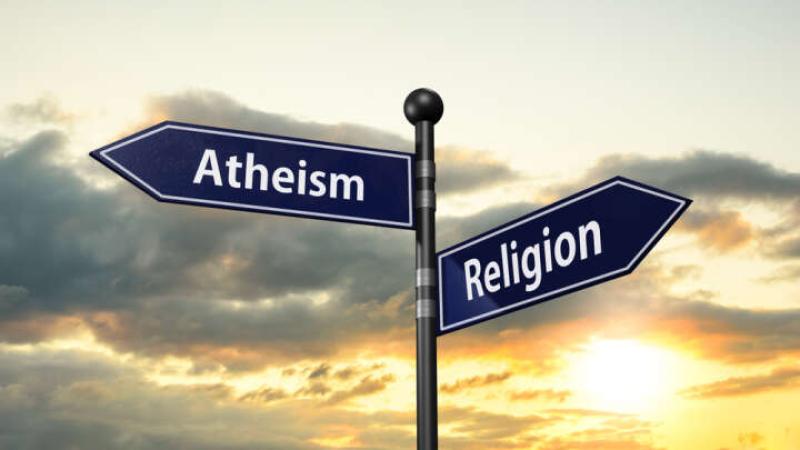Yes, Atheists Do Have A Good Moral Compass, Study Shows | IFLScience
By: Francesca Benson MSci 26 Feb 2021, 15:25 (IFLScience)



"There is a widespread cross-cultural stereotype suggesting that atheists are untrustworthy and lack a moral compass. Is there any truth to this notion?" opens a new paper published in PLOS One, investigating the relationship between moral values and religious belief or disbelief. The paper describes the results of four surveys of 4,622 atheists and theists across America and Sweden, examining the relationship between religious belief - or lack thereof - and moral values.
"The most general take-home message from these studies is that people who do not believe in God do have a moral compass. In fact, they share many of the same moral concerns that religious believers have, such as concerns about fairness, and about protecting vulnerable individuals from harm," said study author Tomas Sthl of the University of Illinois at Chicago in a statement.
There still seem to be widespread negative attitudes towards atheists worldwide. In a 2019 Pew poll, an average of 45 percent of people across 34 countries say that belief in God is necessary to be moral and have good values. Only 60 percent of respondents to a 2020 Gallup poll would vote for an atheist presidential candidate, whereas 95 percent would vote for a Catholic candidate, 93 percent would vote for a Jewish candidate, and 80 percent would vote for an evangelical Christian.
The studies in this paper investigated the participant's endorsement of Liberty/oppression and amoral tendencies, as well as the five foundations of the Moral Foundations Theory: Care/harm, Fairness/cheating, Loyalty/betrayal, Authority/subversion, and Sanctity/degradation.
The first two studies described in the paper used Amazon's Mechanical Turk platform, a website to crowdsource responses, to survey hundreds of US residents. From this data, religiosity was found to be unrelated to amoral tendencies and endorsement of Liberty/oppression, as well as individualizing moral foundations of care and fairness. However, atheists were found to have a weaker endorsement of binding moral foundations such as deference to authority, sanctity, and in-group loyalty.
"It is possible that the negative stereotype of atheists as immoral may stem in part from the fact that they are less inclined than religious people to view respect for authority, ingroup loyalty, and sanctity as relevant for morality, and they are more likely to make moral judgments about harm on a consequentialist, case by case basis," said Sthl.
The second two studies surveyed thousands of individuals across America and Sweden - America is a more religious country, whereas Sweden is very secular. Data from these studies showed the same pattern of results as the previous two.
These studies also took into account credibility-enhancing displays and perception of existential threat, examining whether they had an influence on having religious beliefs. Credibility-enhancing displays involve important members of the community engaging in behaviors in service of religious beliefs that would be personally costly if the beliefs were false. The data showed that less exposure to credibility-enhancing displays, lower perception of existential threat, as well as a more analytical cognitive style, was associated with a lack of religious belief.
As a whole, these results support the notion that the moral compass of atheists is just as good as the moral compass of theists. However, atheists are more likely to assess the morality of actions based on their consequences, whereas religious people tend to endorse moral values that promote group cohesion. As Sthl writes in the paper: "Atheism merely implies the absence of religious belief, and says nothing about what positive beliefs the disbeliever holds."




I've often said religion does not have a monopoly on morality. Neither is morality unique or exclusive to religion. The idea that atheists are immoral or amoral because they lack religion or belief in a god is steeped in ignorance and religious bias.
I've never met a thumper that wasn't either mentally damaged, morally corrupt, or both.
I suppose that is a prerequisite.
In my experience extremely religious people are not particularly moral in their beliefs or their behaviors...
Sanctimonious and self righteous might be a more apt description.
I've met very religious people who were also very good, moral people. But I've also met very religious people who were self-righteous bigots using religion to justify their bigotry.
... the "I can be a total asshole up until my last breath because I'm born again cultist" are my favorite kind of thumpers. /s
Yup. Or "The Bible says that so-and-so is a sinner and is going to Hell. It's my responsibility to give her a taste of what Hell will be like, right here on Earth, to warn her. It's my Christian duty!"
Yeah, Hell is having to be around self righteous people like that.
Of course we do. Studies always show that we are some of the most accepting and least violent people on the planet. Aside from not believing in faries, why are we so bad?
Pretty sure that my lack of belief in mythology and superstition reflects well upon any moral judgements and decisions I make in my life.